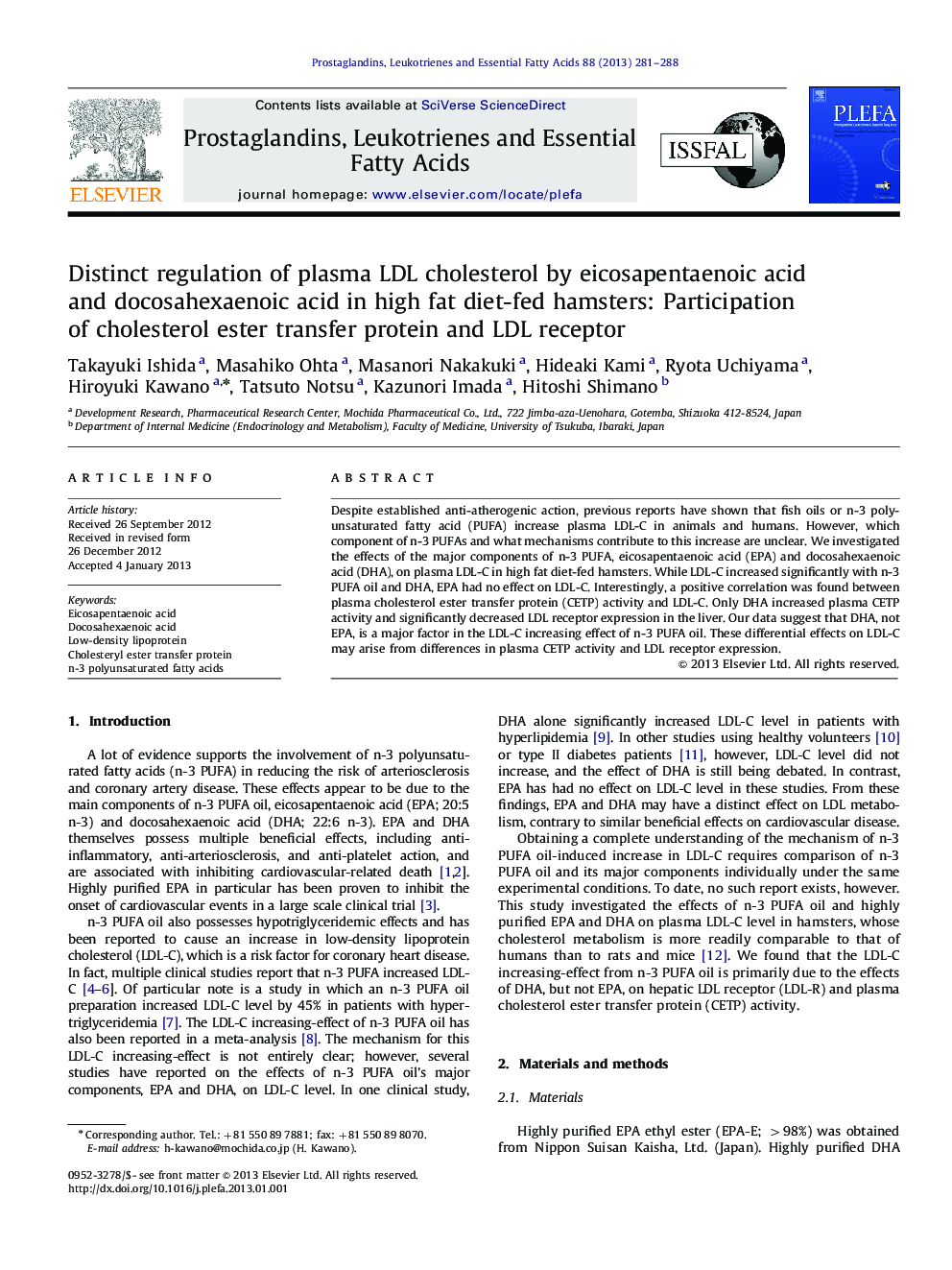| Article ID | Journal | Published Year | Pages | File Type |
|---|---|---|---|---|
| 5888576 | Prostaglandins, Leukotrienes and Essential Fatty Acids (PLEFA) | 2013 | 8 Pages |
Despite established anti-atherogenic action, previous reports have shown that fish oils or n-3 poly-unsaturated fatty acid (PUFA) increase plasma LDL-C in animals and humans. However, which component of n-3 PUFAs and what mechanisms contribute to this increase are unclear. We investigated the effects of the major components of n-3 PUFA, eicosapentaenoic acid (EPA) and docosahexaenoic acid (DHA), on plasma LDL-C in high fat diet-fed hamsters. While LDL-C increased significantly with n-3 PUFA oil and DHA, EPA had no effect on LDL-C. Interestingly, a positive correlation was found between plasma cholesterol ester transfer protein (CETP) activity and LDL-C. Only DHA increased plasma CETP activity and significantly decreased LDL receptor expression in the liver. Our data suggest that DHA, not EPA, is a major factor in the LDL-C increasing effect of n-3 PUFA oil. These differential effects on LDL-C may arise from differences in plasma CETP activity and LDL receptor expression.
